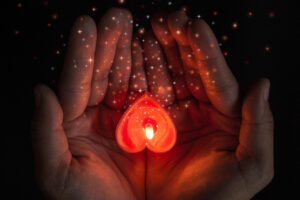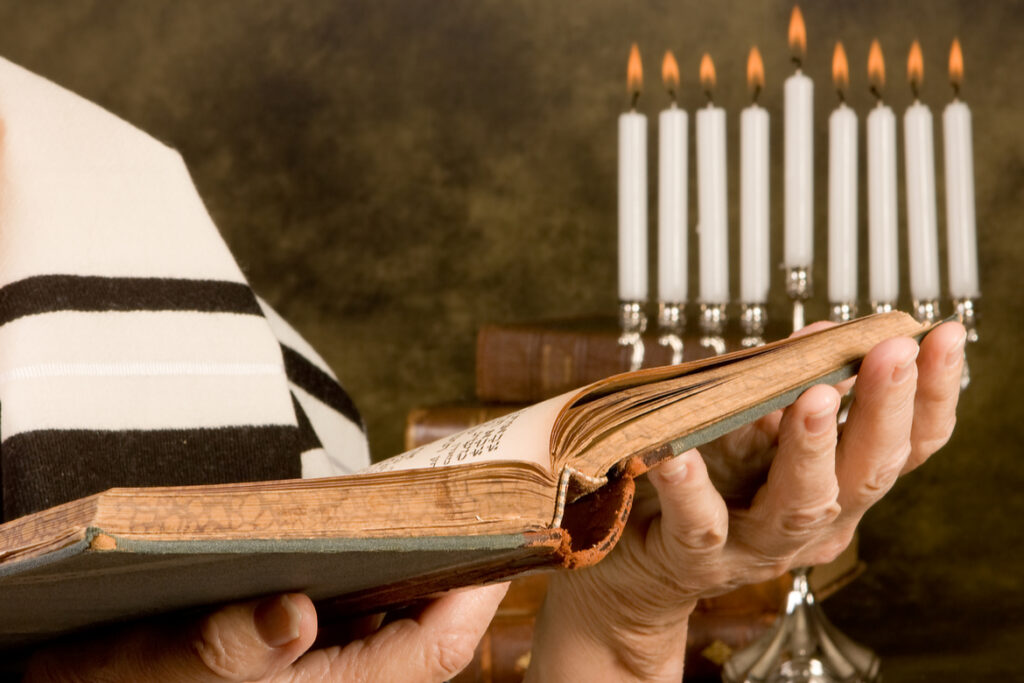The 4 Essential Faiths
Judaism, the basis
of the Kabbalah, is founded upon four types of faith that are crucial to its observance:
1: Faith in God
2: Faith in the Torah
3: Faith in the Tzaddikim (righteous people)
4: Faith in Yourself
Obviously, faith in God is paramount. Without faith in God, we lack the crucial awareness that we are connected to the Infinite and therefore have an Infinite Resource to draw upon at all times and in all circumstances. This faith is extremely invigorating and encouraging, no matter what situation we find ourselves in or what is happening around us at any given moment, because through it we can access the One who created and controls all.
Faith in Torah is essential for attaining faith in God. Our heritage teaches us that the Torah is a product of God’s Wisdom and is the blueprint for creating the world. God gave His Torah to the Jewish People at Sinai, so they could use it to harness and transform the material world into a vehicle for recognizing God in all circumstances. If we lack faith in the Torah, our connection to God and our ability to tap into the Infinite Resource is greatly weakened, since the only way we know about God is through His Torah.
Faith in the Tzaddikim helps us understand the Torah and its message and ultimately reach out to God. Our Sages teach that the Oral Torah was given together with the Written Torah (see p. 14); the Tzaddikim, masters of the Oral Torah, help us access the whole Torah. Their teachings open gateways to the deeper messages of the Torah and reveal to us the power that hovers beneath the surface of this world. This knowledge is essential for developing our potential, which also lies beneath the surface.
Without faith in yourself, however, the other types of faiths have little meaning. Why serve God? Why put in effort to study “old books” or the teachings of wise men of yore? What has this to do with me? Only if each of us believes, “I, as a person, was created by God, Who placed me on this planet with my unique strengths (and failings) and empowered me to accomplish whatever it is that I can while I am alive,” then our lives take on real meaning. “ Since He created me, He wants me! He loves me!” A person who believes he is important in God’s eyes knows that he wasn’t placed here randomly. He is alive for a reason; he has a purpose in life which he will learn about more and more as his life evolves. And along with his conviction that his life has purpose, he has faith in himself that he can accomplish and reach his goals.
Like the paradox of the Vacated Space, faith is also something that transcends reason: “I don’t know if I can succeed, but I believe I can succeed.” This idea is particularly important in light of the fact that Creation can only take place within a Vacated Space. This space represents a void, an unfamiliar territory in which we face life’s challenges head-on. Being unsure of what to do next can be a frightening experience. But this is how we grow! Generally speaking, people are creatures of habit. Facing a new challenge or confronting a new situation, a change in a relationship, a new job opportunity, etc., we almost always seek that which is familiar. It’s natural to feel apprehensive about the unknown: “What does it mean to me?” “How will it affect my life?” So we seek the friendly or the usual. But we must not be afraid of the unknown. Apprehensive? Of course. But afraid? No! We must realize that it is only within uncharted territory—our personal “vacated space” and “hollow void”—that creation can take place and our potential can develop.
The following story illustrates this point:
An automobile magnate once interviewed an engineer who sought employment with his company. The two went out to dinner and ordered steaks. While they were waiting to be served, they discussed the job arrangements. When the steaks arrived, the engineer proceeded to liberally salt his portion before he tasted it. The magnate told him that he would not be hired after all, saying, “If you will not try out something new without resorting to your lifetime habits, you are not creative enough for us!”
Life is full of challenges. Some we might relish; others we most certainly try to avoid. But we do not really have a choice about what we are about to face. Things have a way of being tossed into our lives at the most inopportune times and in the most unexpected ways. If we believe in ourselves, if we are positive about our abilityto think clearly and reach responsible decisions using our available resources and knowledge, then we can face just about any situation and turn it into a new and beautiful creation.
- 3 comments























3 Responses
could you please answer these. i have worked with many people in ‘suffering’ circumstances, so i am asking to be able to be more helpful in such situations.
1. “G-d created me, therefore He loves me.” how can we know this? people who suffer might have a hard time with this. if you told them, He loves you so he’s giving you tikkunim and that’s why you are suffering..it might not help them really believe that Hashem loves them. please clarify.
2. “I believe i can accomplish”. how does one cultivate this?
3. the story at the end, to me, unfortunately, seems kind of harsh. a person would lose a job because he salted his steak? maybe he was nervous? who knows?
thank you!
I think question #1 is a very personal one. You can’t force someone to have Emunah/faith, you can only encourage. The end of the day we need to all find God in OUR lives and this advice opens the doors for a lot of people trying to understand why there is suffering in this world.
#2 Rebbe Nachman often said be saying things out loud you have the ability to internalize them. Try telling this to yourself, say it out loud, scream it! Also learn to appreciate the little things you accomplish and be thankful for them. If you see that God helps you do small things, it will be easy to believe in Him helping you to do big things as well. Lastly makes Hitbodedut and ask Him to help you internalize this and show you success, we can’t do ANYTHING without His help.
3: You have to ask his boss about that one!
This Dvar Torah, I guess, also hints at another way of davening better.
First, with the 4 sefirot, faith in Hashem can possibly be seen as Tiferet, faith in the Torah can possibly be seen as Chesed, faith in the Tzaddikim can possibly be seen as Gevurah, and Faith in Yourself can possibly be seen as Malchut. And this hints to this deeper level of davening:
In davening a person is obviously like a warrior; and, in the Torah it says about the snake “I will put enmity between you and the woman”. The word “enmity” is the 4 letter word “Eyvah” (aleph-yud-bet-hey). “Eyvah” can be possibly seen as an acronym, I think, for Ahavah-Yirah-Boshet-Hitlahavut (Love-Awe-Shameful Humility-Enthusiasm). A warrior has a sword, a shield, armor, and his footwear. If a person has difficulty listening to their prayer, then they need more ahavah (the sword). If a person feels like their mind is starting to wander (their yetzer hara is attacking), then they need more yirah (the shield). If a person feels like their mind has completely wandered (their yetzer hara hit them), then they need more boshet (the armor) to get back on track. If a person feels like their davening isn’t strong enough, then they need more hitlahavut (the footwear) to get in a better position to attack with ahavah. This Dvar Torah can thus help with davening in that a person can then self-diagnose how to daven better while davening!
Faith!